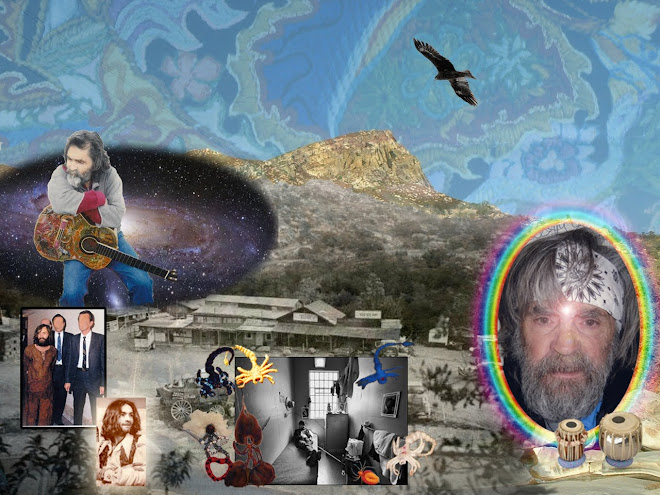I am currently reading through the National Geographics' new magazine, "The New Universe" (ok so the mainstream scientific community is probably as fucked up as the rest of this society, but anyway...). Ever since I was a very young girl, I have studied outer space because of an odd, genuine interest. So, I "get" a lot of the lingo and I've got a relatively good understanding of how things work out there (or at least, how THEY SAY it works).
Now, I'd like to communicate some understanding that makes a good explanation of perspective on this "we're killing our fuckin planet and that means we die with it" message that Charlie and others have been trying to tell the world ever since that damn industrial revolution. This planet is NOT infinite, people!!
To start, the sun that gives our planet life is an average sized star in the Milky Way galaxy. This star has some planets orbiting around it. You know them, Mercury, Venus, Earth, Mars, and so on.....
Our planet, Earth, lies within the habitable zone of the solar system (scientists looking for life on planets orbiting other stars call this the "Goldilocks zone"). That means, basically, we are far enough away from the sun to not burn up, and close enough to it to not freeze, thus, life is possible on the planet. I just found out that scientists, to date, have discovered more than 400 planets orbiting around other stars in our galaxy. Pretty interesting, huh? Most of these planets are the size of Jupiter (which is really big), and they have yet to find a planet in the habitable zone of its' solar system. I also just found out something very interesting about the planet Venus from this magazine. Venus has an atmosphere that is so thick with greenhouse gasses (like carbon dioxide), that when radiation from the sun reaches the planet, bounces off, and heads back towards the atmosphere, it is unable to escape that thick atmosphere, and it bounces back down to the planet. This makes Venus the hottest planet, even though Mercury is a lot closer to the sun. A section of the magazine spotlights each of our neighboring planets, and as I read through each one, I was struck with the undeniable realization of how extremely fragile life is in the universe. I mean, this planet is like a microscopic floating bubble, in the big scheme of this galaxy, and there are an endless number of galaxies in the universe! (woa, man...)
But seriously, the complex conditions that life requires to survive and thrive on a planet.... Think about it, we humans are, IN FACT, killing this planet. We are compromising the balance that makes our survival on this planet possible. There is no legitimate argument against that fact. Life on this planet, and its' complex support systems, is known as the biosphere. Without a biosphere, this planet is as worthless as any other ball of rock floating around a star.
We look up at the sky with our tiny minds, and we think, "that's endless, it goes on forever, we could never destroy that". Wrong. Although, the Earth and sky may seem absolutely huge in comparison with ourselves, we must now also consider the absolutely huge HUMAN POPULATION. I believe we are just reaching 7 Billion. That number is overwhelmingly parasitic (see below, my post about human population). We CANNOT continue to kill our trees. The United States used to be a forest. All the places that are now covered with cement used to be forests, or some other kind of natural ecosystem. We CANNOT continue putting pollution in the air, and putting chemicals onto the land and into the water! We are even pumping our children full of chemicals! What is going on here? Humans are operating on a level that is hard for most individuals to comprehend. You must come to a global perspective in order to realize the immense scale of this problem. It's our lives and the life of the planet that's at risk here. Our world society is so advanced, that we can talk to people across the ocean in real-time, we can take photos of things a million light years away with our Hubble Space telescope, yet we can't get our shit together and change over to a sustainable system of living on our own planet. This is so frustrating!
I think you get the picture, I know I'm preaching to the choir, so I'll leave you with this thought:
I would love to invite all the brain dead meatballs that won't submit to this reality, to go try and live in outer space. Please go! After all, you don't really need this planet. You can take all the money with you, you can have it all! And us "tree huggers" will be left in the dirt with our bugs and lizards. Now wouldn't that be nice? (Who's with me?)
(A friend of mine just said, at the end there's gonna be a big echo that says "IDIOTS!")
Subscribe to:
Post Comments (Atom)



This is sooo right on. You have the voice of the earth residing within you.
ReplyDeleteI'm with you Star, I see exaclty what you're saying and it's frustrating as anything I've known. I believe in the echo.....I hope all is well with you guys up in the central valley...PEACE
ReplyDeleteIt's also sad that when searching for other stars, we either have to look for red dwarfs or for giant planets. I read somewhere with the estimations of galaxies, stars, sun-like stars, earth-like planets, goldi-locks zones, there can less than 30 "Earthlike" planets, however there's always the room for many more.
ReplyDeleteSadly, with technology, it will take hundreds of thousands of years (I think) to find them.
I think we're pretty doomed. I think we will never be able to conquer out speed problem with space travel.
We just need to learn how to take care of what we have, preserve what we have left.
Great post.
Human Population, or Overpopulation, is certainly a problem that we have to deal with as a species. The only problem is that we're not a collective "1" society yet. In other words, there is no 1 world govt to address this issue on a planetary level and, even if this were the case, we come down to the issue of who lives and who dies. Man always seems to be put into a position where he's forced to play God and that's where the problems begin. The population has to be reduced but then the issue aries of who will do the cutting and who gets cut.
ReplyDeleteIt is a hard thing to do though, even though you know about it. I do what I can and am very conscious about things, but I would like to see everyone try to go back to ground zero and get off this whole system. But you have certain families with big money conditioning everyone to consume. We have to get back to nature and the natural process. Santos Bonacci (Mr. Astrotheology on YT) has some good ideas for that. Great post.
ReplyDelete